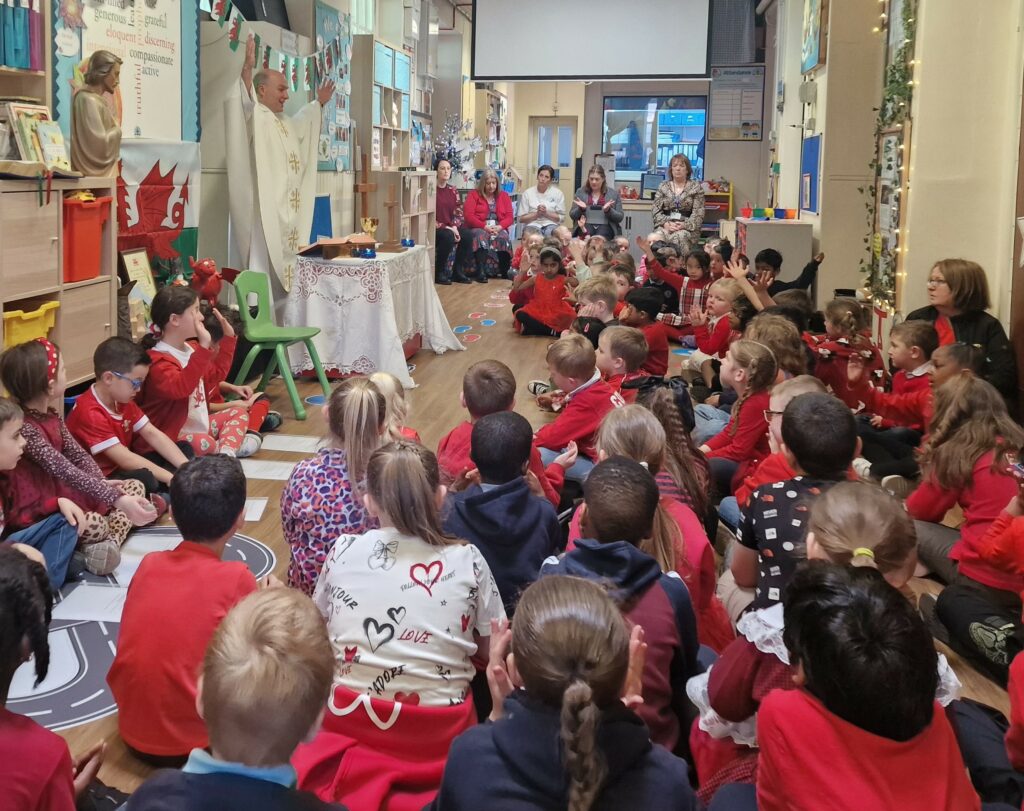WellComm guide for parents and carers
Wellccomm Assessment Tool is used across schools in NPT and in St Joseph’s Infant School to support the speech, language and communication skills of young children (ages 0 to 5).
A key part of the approach is the WellComm Toolkit. This toolkit helps identify any speech, language or communication difficulties in children early on, so they get the right support as soon as possible.
Introducing the WellComm Toolkit
The first part of the WellComm Toolkit is the Screening Tool. This tool checks your child’s language skills – what they understand and can say. This involves observations, discussions with you, and some fun tasks for your child to complete.
The WellComm Toolkit uses a colour score to help identify what support your child may require.
- Green: Your child’s language skills are developing as expected for their age – no extra support needed
- Amber: Your child may need some extra help with certain language skills
- Red: Your child may need more focussed support to help with language development
It’s important to remember that every child develops at their own pace. The colour score is just a guide to help identify the best activities to support your child’s development.
The second part is the Big Book of Ideas. This book is filled with fun, simple activities to help boost your child’s language skills. You can use these activities at home, and they are designed to match your child’s individual needs.
How You Can Support Your Child at Home
Be Involved in the Screening Process: Your insights as a parent are valuable. Share your thoughts on your child’s communication skills with their nursery or school.
Work with us: Make sure everyone is using the same strategies and activities. We will share activities from the Big Book of Ideas for you to use at home.
Start Small: If you’re given lots of targets or activities to try, start with just one or two. Focus on these before moving on to others.
Ask for Help if Needed: Not sure how to do an activity? Ask staff to show you or see if you can watch them do it with your child.
Make it Part of Your Routine: Use everyday moments like bath time, mealtimes or playing in the garden to practice communication skills.
Check Out Helpful Videos: The GL Assessment videos about adult-child interaction strategies can be helpful for all children.
Ask for Support if You Have Concerns: If you’re worried about your child’s speech or language skills, talk to their school or nursery. They can guide you to useful information and resources, including local groups or services.
How have other parents found using Wellcomm?
One parent described how easy the Wellcomm activities were to use with her child at home:
The activities are great because they just use things I already have at home, like his favourite toys.
She spends a few minutes each day on these play-based activities and talks to the nursery every couple of weeks about her child’s progress. She has noticed her child’s communication has improved and he is connecting better with others. At nursery he is putting 2 words together to ask for things he wants.
The nursery is thrilled with these positive changes, seeing how the Wellcomm toolkit helps children’s language develop both at nursery and at home.
Further support
You can access further support in the following ways:
- if you have any further questions about how the WellComm is used in your child’s school / setting, please speak to your child’s key person
- access BBC Tiny Happy People website with lots of advice and activities for how parents can support a child’s SLCN




















